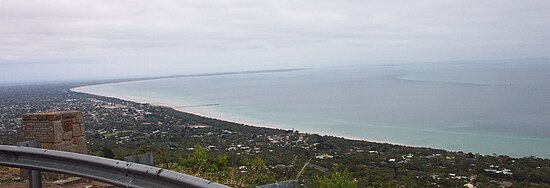This article contains instructions, advice, or how-to content .(December 2016) |

Tourism is a significant industry in the state of Victoria, Australia. The country's second most-populous city, Melbourne was visited by 2.7 million international overnight visitors and 9.3 million domestic overnight visitors during the year ending December 2017. [1]
Contents
- Tourist numbers
- Popular sites
- Restaurant & café districts
- Restaurants
- Coffee Culture
- Bars, pubs and nightlife
- Close to Melbourne
- Australian tourism
- See also
- References
- External links
Often lauded as Australia's heart of culture, Melbourne's attractions include sporting events, art galleries, live music, festivals and fashion events that are popular with tourists and locals alike. Named the world's most liveable city from 2011 to 2017, Melbourne's culture and lifestyle have been increasingly promoted internationally, leading to average year-on-year growth of international visitors of 10% in the five years to 2017. [1] [2]
In its annual survey of readers, the Condé Nast Traveler magazine found that both Melbourne and Auckland were considered the world's friendliest cities in 2014. The magazine described the "wonderful sense of humour" of Melburnians, who live among public art and parks. [3] [4]







